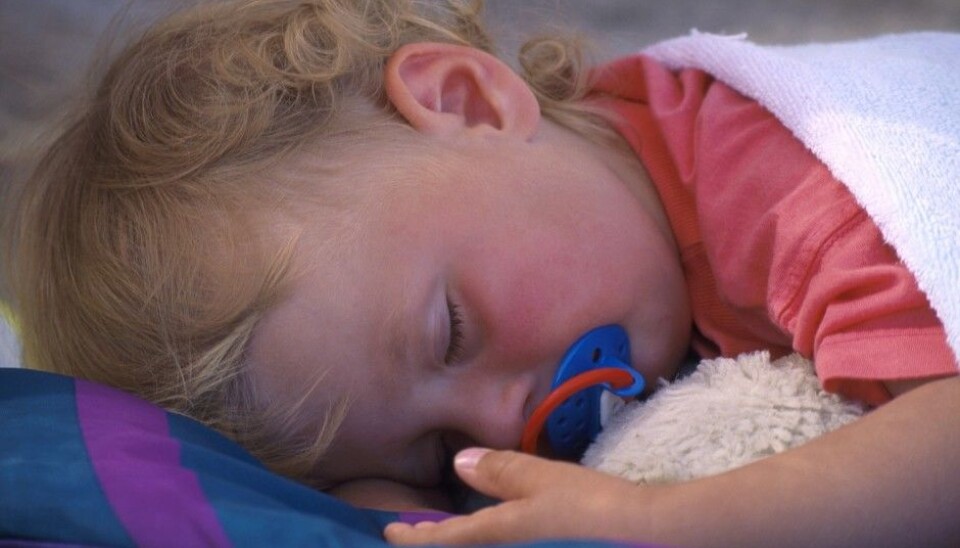
Children who snore can develop learning problems
Extended snoring problems can, worst case, delay the development and growth of a child and lead to learning difficulties, according to a new Swedish study.
It might sound cute when a toddler snores now and then. It is not uncommon for children to snore when they have colds.
But parents should be on the alert if a child snores frequently and for extensive periods. Especially if the snoring causes pauses in breathing, or sleep apnoea, as it is called.
Sleep apnoea can lead to reduced sleep quality which impacts the child’s health, as shown by a new Swedish study published in the Journal of Laryngology and Otology.
Fatigue and concentration problems
Snoring induced apnoea impairs sleep quality and makes the child tired during the day. This in turn leads to concentration and learning problems. Long-term snoring can also lead to bedwetting or a delay in a child’s growth.
The study shows that children with persistent snoring problems often encounter a generally inferior quality of life.
“This applies particularly to children who suffer sleep apnoea,” says Gunnhildur Gudnadottir to ScienceNordic’s Swedish partner, forskning.se. Gudnadottir is a medical researcher at Sahlgrenska Academy in Gothenburg.
The results are based on a population study of 750 children, from a randomly selected group of 1320 kids, aged from infants to 11-year-olds. The children whose caregivers responded to the questionnaires about the kids comprised the group of 750.
Only a third sought help
According to the study about five percent of these children snored several times a week. In other words, 35 children in the study were affected.
Only a third of these children’s caregivers had contacted the health services to treat the problem.
The study shows that the detrimental effects of snoring on a child’s health are underestimated.
“This indicates a lack of knowledge about how nightly bouts of sleep-disorder breathing impairs a child’s health,” says Gunnhildur Gudnadottir, who is also a chief physician at Sahlgrenska University Hospital.
She thinks this means there is a need to raise attention to this possible problem, among parents, health stations and family MDs.
Can be treated
She says the child should be given a health assessment if he or she suffers from persistent snoring and apnoea. The medical researcher thinks parents need to be informed more about the problem and informed where to get help.
In some cases snoring can be caused by swollen tonsils or by glands behind the nose. In such cases, snoring can be reduced or eliminated surgically.
The researcher advices parents or caregivers whose children have long-term snoring problems, with pauses in breathing, to contact their family doctors to have the child examined.
Harmonizing with earlier studies
Previous studies have also found deleterious side effects of snoring and apnoea among children.
One such research initiative from 2012 indicates that children who snore loudly at least two nights per week when they are both two and three years old, are more likely to have behavioural problems than children who don’t snore.
Another study, which followed the progress of 11,000 children in the USA for six years, found similar patterns. These results indicate that toddlers with sleep-disordered breathing have a greater probability of behavioural problems such as hyperactivity and aggression when assessed at both age four and age seven.
-------------------------------------
Read the Norwegian version of this article at forskning.no
Translated by: Glenn Ostling






